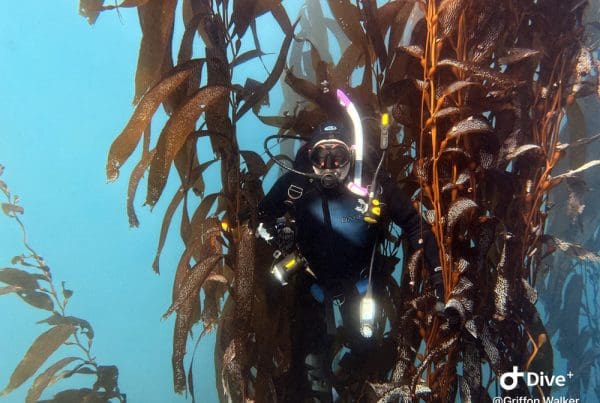California game wardens are waging an abalone anti-poaching effort with the aid of prosecutors from Sonoma and Mendocino counties. Poaching, in combination with a significant increase of lawful abalone harvest in both counties, is placing more pressure on the resource than ever.
“Despite our cooperative efforts, the abalone resource is struggling,” said Department of Fish and Game (DFG) Law Enforcement Chief Nancy Foley. “Abalone are being harvested from the two counties–via both legal and illegal means–at an unsustainable rate.”
It is never legal to harvest abalone with a sport fishing license and then sell it. Commercial harvest of wild abalone has been banned since 1997. However, abalone fetch $100 each or more on the black market. For many poachers, the black market value outweighs the risks of poaching for profit.
Abalone Report Cards
Ten years after the regulation requiring the abalone report card was instituted, the cards have proven to be an invaluable tool to help wardens catch poachers. Each abalone taken must be identified with a tag from the abalone punch card, properly filled out with the date, time and location of the abalone harvest. The abalone report card has helped wardens crack down on double tripping, which is the practice of harvesting a legal limit of abalone, off-loading them on land and then making another trip on the same day to harvest more abalone. Abalone report cards also provide biologists with crucial data related to recreational harvest. Data collected via telephone surveys and by field survey crews are also used by biologists to monitor abalone populations.
The collection of data has enabled biologists to identify a sharp increase in the lawful abalone harvest in Sonoma and Mendocino counties in the last two years. Harvest in Sonoma’s Fort Ross and Fort Ross Reef areas are the most intensive in the state, with approximately 50,000 and 60,000 abalone taken in each of these areas respectively in the last two years. These figures are double the amount harvested in those areas just a few years ago. In Mendocino County, Moat Creek’s harvest was 14,000 over the same two-year period, while just under 16,000 were legally taken in Van Damme State Park. These numbers are also approximately double the harvest of only a few years ago.
Aggressive Enforcement by Wardens
Wardens in Sonoma and Mendocino counties are well trained, well equipped and highly effective at catching abalone poachers. On May 16, 2010, an abalone checkpoint at Russian Gulch on the Sonoma Coast demonstrated the prevalence of abalone fishing and poaching. Wardens checked 520 vehicles with occupants who had harvested abalone. Most vehicles had at least three abalone harvesters, while some had as many as six, and most had limits of abalone for everyone in the vehicle. Wardens issued 57 citations to violators and seized 84 abalone. The most common violations noted were possession of over-limits, retention of undersized abalone, failure to properly tag abalone using the abalone report card and altering an abalone report card. A June abalone checkpoint in Mendocino County of 215 vehicles resulted in 41 citations, 56 warnings and 85 seized abalone. Violations were similar to those found at the Sonoma County checkpoint.
Aggressive Prosecution of Violators
Prosecutors in Sonoma and Mendocino counties are some of the most aggressive anti-poaching prosecutors in California. Abalone poaching fines regularly range into the thousands of dollars, with potential forfeiture of dive gear and, for the worst offenders, jail time. Despite this deterrence, the number of repeat offenders remains startling.
On May 21, Randy Lee Appleyard, 26, of Waterford, was convicted of poaching abalone for commercial sale while on probation for the same offense. Following his plea of no contest, Judge Richard Henderson sentenced him to three years in state prison for felony conspiracy to take 45 abalone for commercial purposes, as well as a $20,000 fine and lifetime prohibition from fishing in California. Co-conspirator Christopher Michael Kern, 27, of Orangevale, was sentenced to 270 days in county jail, three years supervised probation, a $20,000 fine and a lifetime fishing prohibition. Co-conspirator Philip Michael Horch, 27, of Fair Oaks, was sentenced to 180 days in jail, three years supervised probation, a $20,000 fine and a lifetime fishing prohibition.
To best assist DFG, report poaching crimes to DFG’s CalTIP line at 1-888-334-2258. Abalone harvesters are urged to turn in their report cards on time. The current return rate is less than half. Though this is an improvement since 2002, when the return rate was around 20 percent, it is still not enough. Failure to turn in the abalone report card can result in a citation. Data from the cards remains critical to properly manage the resource.










